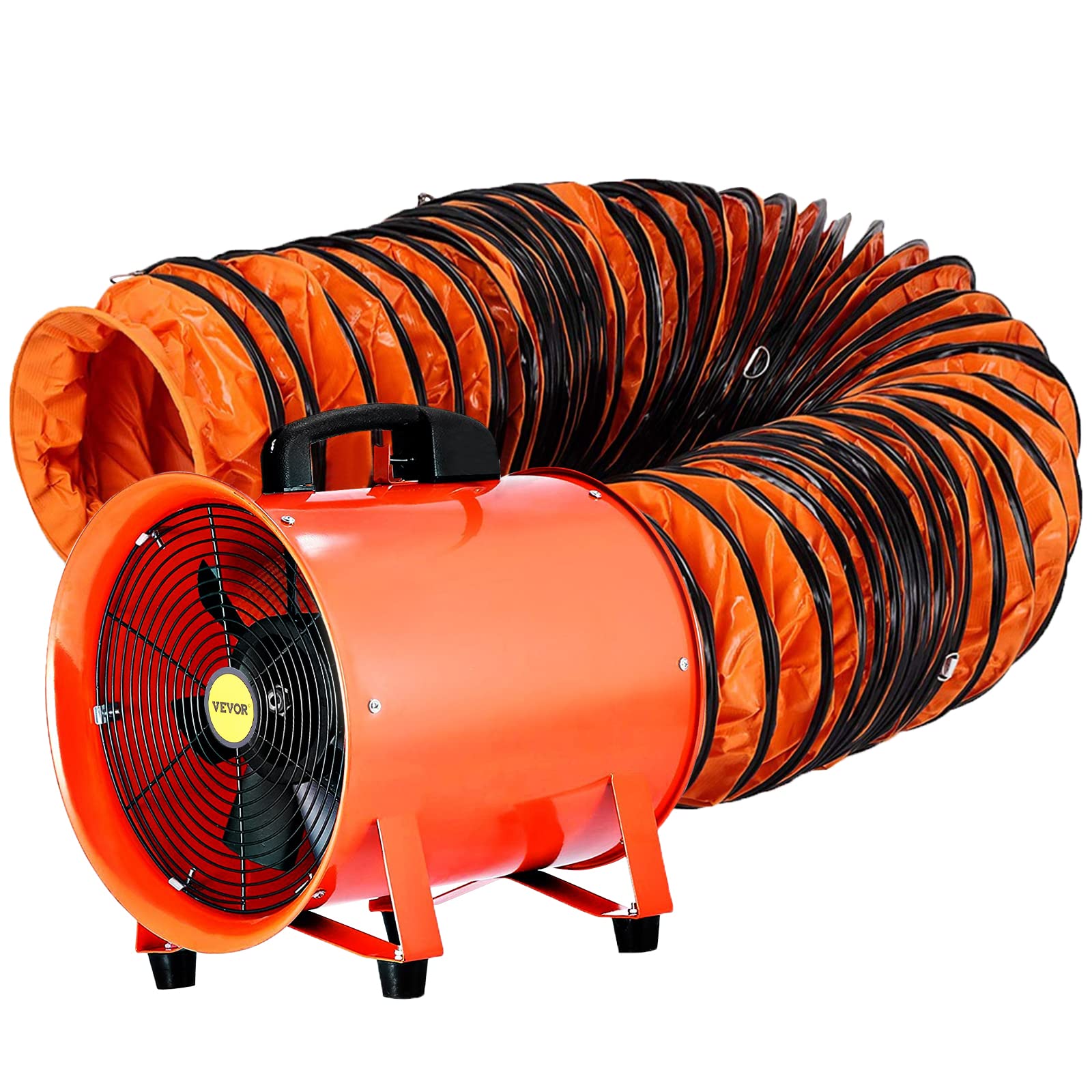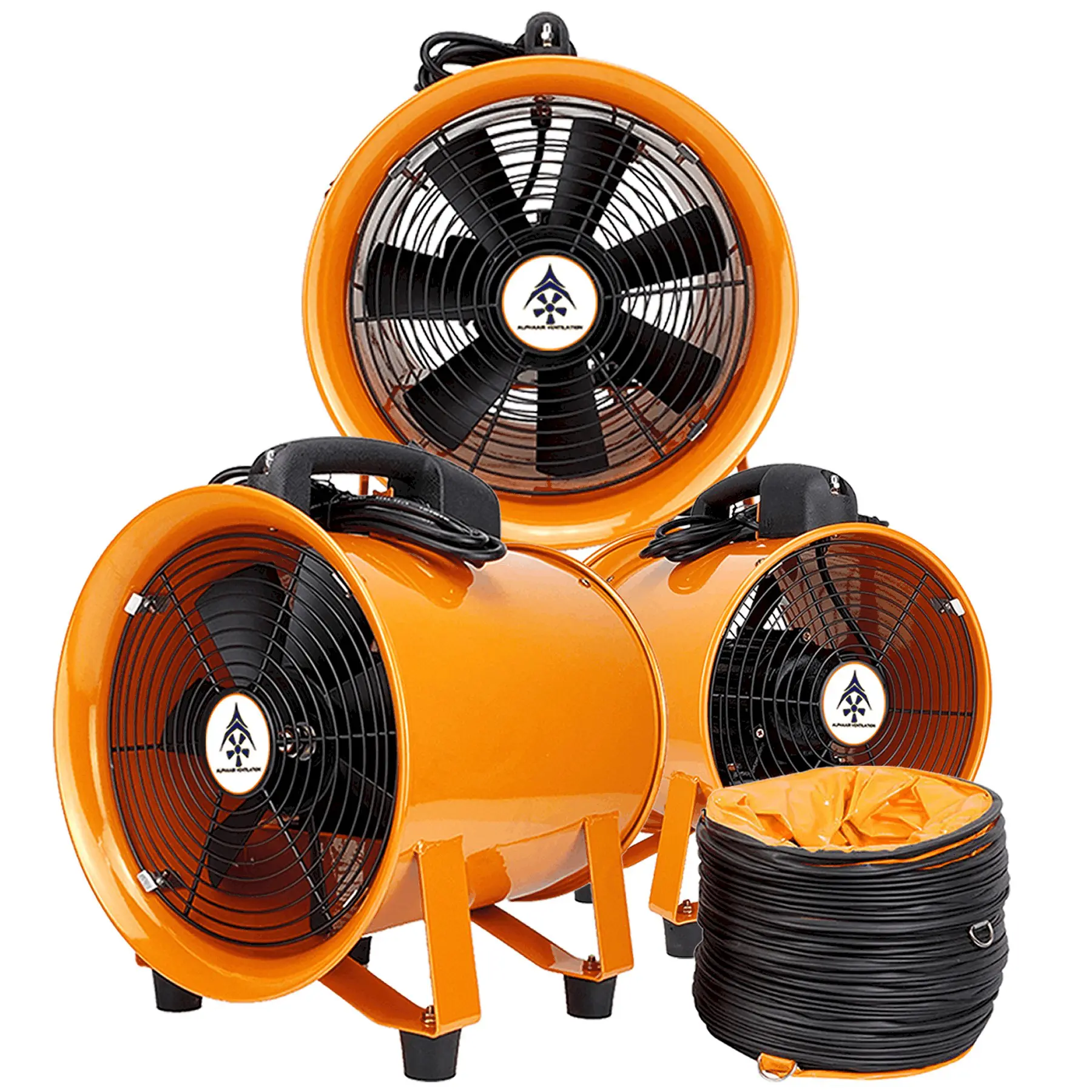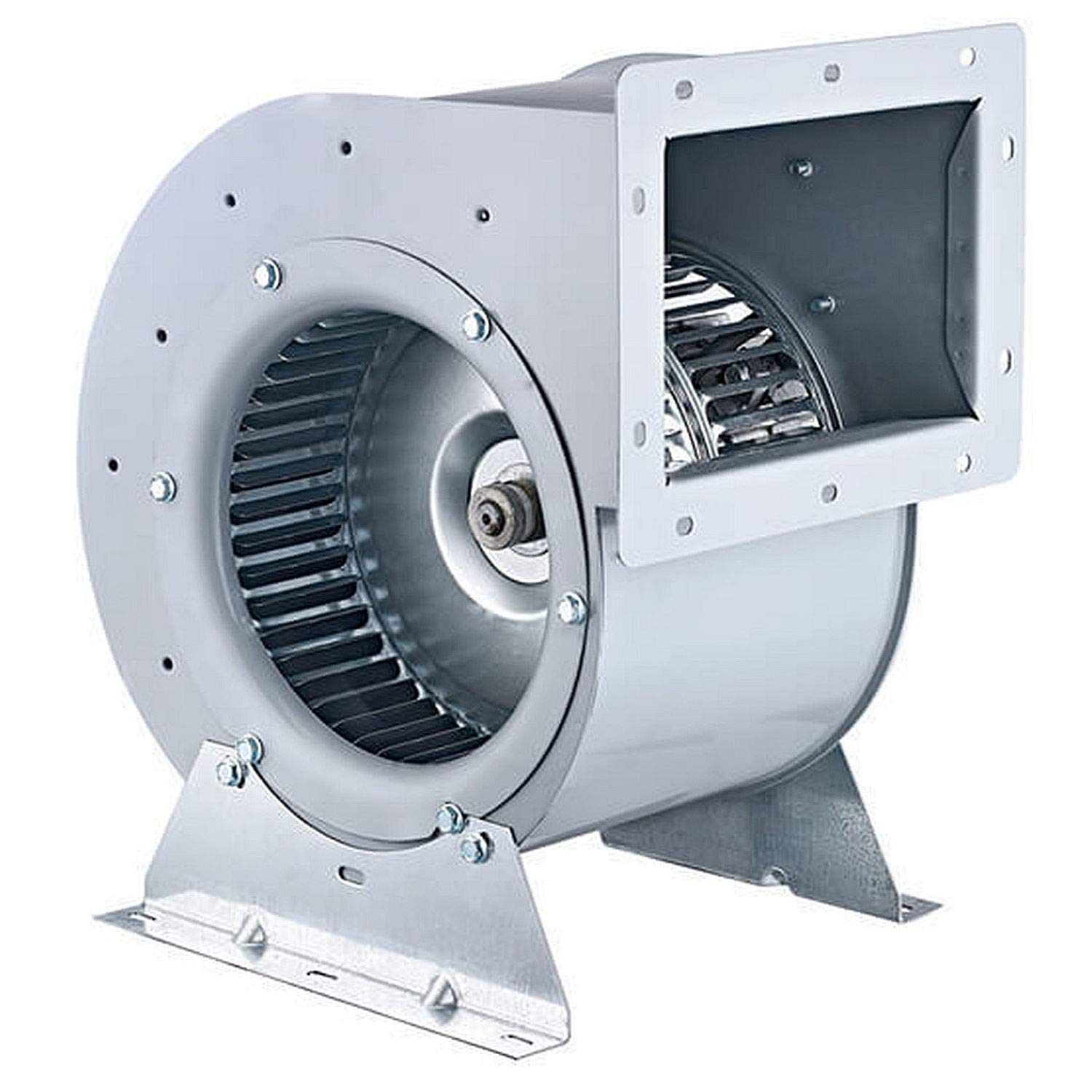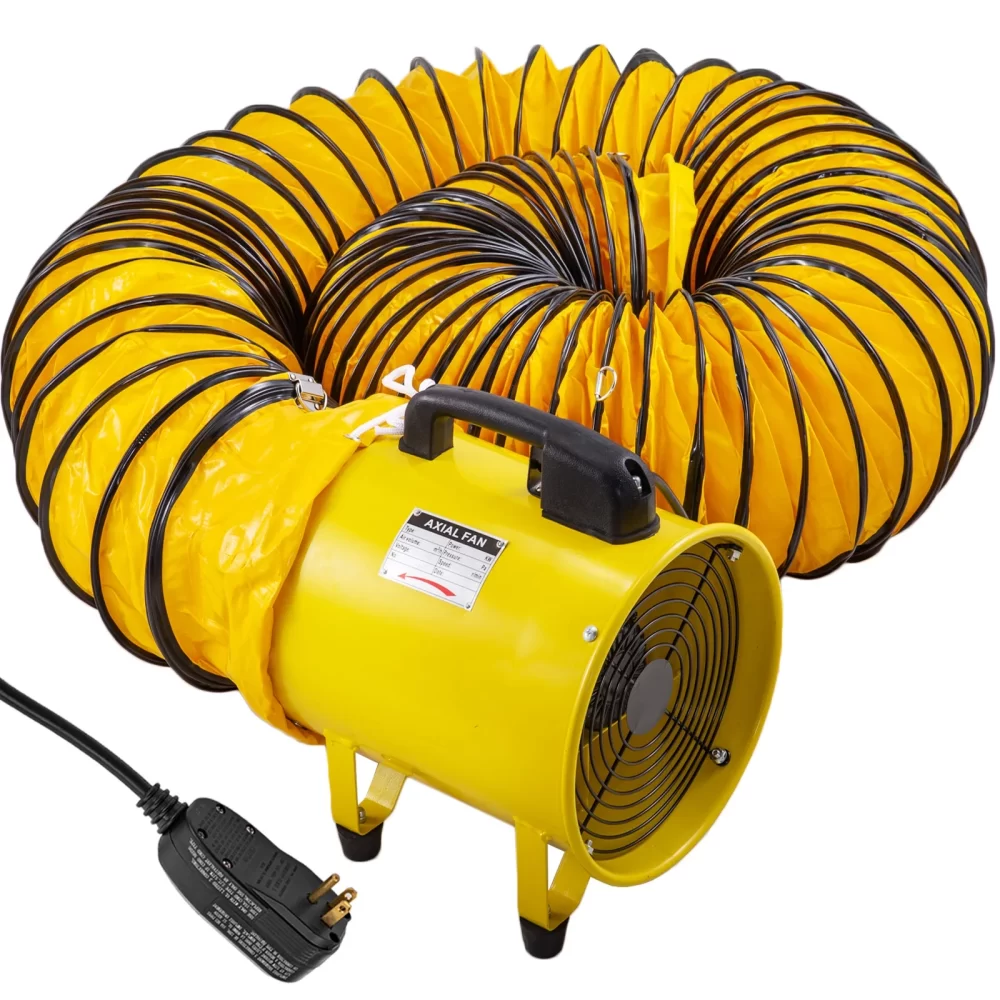When it comes to maintaining optimal airflow in various environments, selecting the right blower fan is essential. Whether you’re looking to enhance ventilation in your home, improve industrial processes, or ensure effective cooling in your workspace, a blower fan plays a crucial role. In this detailed guide, we will explore the different types of best industrial blower fan for heating 2025, their applications, key features to consider, maintenance tips, and frequently asked questions to help you make an informed decision.
 Understanding Blower Fans
Understanding Blower Fans
Blower fans are powerful devices designed to move air or gas efficiently across different settings. Unlike standard fans, blower fans generate higher pressure, making them ideal for applications that require focused and forceful airflow.
What is a Blower Fan?
A blower fan is a mechanical device that uses rotary motion to generate a directed airflow. It operates by drawing air into the unit and then expelling it at a higher velocity, creating a focused stream of air. This mechanism makes blower fans suitable for tasks that demand significant air movement over short distances.
Key Components of a Blower Fan
Understanding the main components of a blower fan helps in selecting the right model for your needs:
- Motor: Powers the fan, determining its speed and efficiency.
- Impeller: The rotating part that moves the air. Its design affects airflow and pressure.
- Housing: Encloses the impeller and directs the airflow.
- Housing Inlet and Outlet: Controls the entry and exit points of the air, influencing the fan’s performance.
Types of Blower Fans
Blower fans come in various types, each tailored to specific applications. Choosing the right type ensures optimal performance and efficiency.
Centrifugal Blower Fans
Centrifugal blower fans use a spinning impeller to push air outward from the center, creating a pressurized flow. They are ideal for applications requiring high-pressure airflow, such as HVAC systems, industrial ventilation, and pneumatic conveying.
Advantages of Centrifugal Blower Fans
- High Pressure Output: Capable of moving air against significant resistance.
- Efficient Airflow: Maintains consistent airflow even in challenging conditions.
- Durability: Built to withstand harsh environments and heavy usage.
Axial Blower Fans
Axial blower fans move air parallel to the fan’s axis. They are commonly used in applications where a large volume of air needs to be moved over a relatively short distance, such as cooling electronic equipment, ventilating large spaces, and in automotive cooling systems.
Benefits of Axial Blower Fans
- High Airflow Volume: Efficiently moves large quantities of air.
- Compact Design: Fits easily into tight spaces without sacrificing performance.
- Low Noise Levels: Operates quietly, making them suitable for noise-sensitive environments.
Mixed Flow Blower Fans
Mixed flow blower fans combine the characteristics of both centrifugal and axial fans. They provide a balance between airflow volume and pressure, making them versatile for various applications like agricultural ventilation, workshop cooling, and some HVAC systems.
Why Choose Mixed Flow Blower Fans?
- Versatility: Suitable for a wide range of applications.
- Balanced Performance: Offers both decent airflow and pressure.
- Space-Efficient: Provides effective performance without requiring large installations.
 Applications
Applications
Blower fans are used in numerous settings due to their ability to efficiently move air and maintain desired environmental conditions.
Residential Uses
In homes, blower fans improve indoor air quality by enhancing ventilation. They are used in HVAC systems to circulate air, removing pollutants and maintaining comfortable temperatures.
Common Residential Applications
- HVAC Systems: Ensures efficient heating and cooling.
- Bathroom Ventilation: Removes moisture and prevents mold growth.
- Attic Ventilation: Helps regulate temperature and reduce energy costs.
Commercial and Industrial Uses
Commercial buildings and industrial facilities rely on blower fans for effective ventilation and process control. They help maintain safe working conditions and optimize production environments.
Key Industrial Applications
- Manufacturing Plants: Controls dust, fumes, and maintains airflow in production areas.
- Warehouses: Ensures proper temperature and air quality.
- Food Processing: Manages ventilation to comply with hygiene standards.
Automotive and Transportation
Blower fans are integral to automotive cooling systems, ensuring engines operate within safe temperature ranges. They also play a role in passenger comfort by regulating airflow within vehicles.
Automotive Blower Fan Benefits
- Engine Cooling: Prevents overheating and enhances engine performance.
- Passenger Comfort: Provides consistent airflow for a pleasant driving experience.
- Energy Efficiency: Optimizes power usage for better fuel economy.
Agricultural and Environmental Uses
In agriculture, blower fans support ventilation in livestock facilities and greenhouses. They help maintain optimal growing conditions and ensure the health of animals and plants.
Agricultural Blower Fan Applications
- Livestock Ventilation: Maintains air quality and temperature in animal housing.
- Greenhouse Climate Control: Regulates humidity and temperature for optimal plant growth.
- Dust Control: Reduces airborne particles in farming operations.
 Key Features to Consider
Key Features to Consider
Selecting the right blower fan involves evaluating several factors to match your specific needs and ensure long-term satisfaction.
Airflow (CFM) and Pressure (Static Pressure)
The airflow capacity, measured in cubic feet per minute (CFM), indicates how much air the fan can move. Static pressure measures the fan’s ability to move air against resistance. Balancing these two metrics is crucial based on your application requirements.
How to Assess Your Needs
- High Airflow: Required for large spaces or applications needing extensive ventilation.
- High Pressure: Necessary for systems with significant resistance, such as ductwork or filters.
Motor Power and Efficiency
The motor’s power, often rated in horsepower (HP) or watts, affects the blower fan’s performance. Higher power motors provide more airflow and pressure but consume more energy. Energy-efficient motors can save on operating costs without compromising performance.
Choosing the Right Motor
- Identify Power Needs: Match the motor power to your airflow and pressure requirements.
- Consider Energy Efficiency: Look for motors with high efficiency ratings to reduce energy consumption.
Durability and Build Quality
A blower fan’s durability depends on the materials and construction quality. Fans made with corrosion-resistant materials, like stainless steel or aluminum, are ideal for harsh environments.
Factors Enhancing Durability
- Quality Materials: Prevent wear and tear in demanding conditions.
- Robust Construction: Ensures longevity and consistent performance.
Noise Levels
Noise can be a significant factor, especially in residential or office settings. Blower fans with quieter operation are preferable for environments where noise reduction is essential.
Tips for Reducing Noise
- Choose Fans with Noise Dampening Features: Some models come with insulated housings or vibration-reducing components.
- Proper Installation: Ensure the fan is securely mounted to minimize vibrations and noise.
Size and Installation Requirements
Blower fans come in various sizes to fit different installation spaces. It’s important to select a fan that fits your designated area without compromising performance.
Installation Considerations
- Space Availability: Measure the installation area to ensure the fan fits.
- Mounting Options: Consider ceiling-mounted, wall-mounted, or portable blower fans based on your needs.
Control Options and Automation
Modern blower fans offer advanced control options, including variable speed settings and automation features. These allow for customized airflow and more efficient operation.
Advantages of Advanced Controls
- Energy Savings: Adjusting the fan speed to match demand can reduce energy usage.
- Convenience: Automated controls can adapt to changing conditions without manual intervention.
Maintenance Tips
Proper maintenance ensures your blower fan operates efficiently and extends its lifespan. Regular upkeep can prevent common issues and maintain optimal performance.
Cleaning and Inspection
Regularly clean the blower fan to remove dust and debris that can obstruct airflow and strain the motor.
Steps for Effective Cleaning
- Turn Off Power: Always disconnect the fan before cleaning.
- Remove Dust: Use a soft brush or compressed air to clean the blades and housing.
- Check for Damage: Inspect the fan for any signs of wear or damage during cleaning.
Lubrication
Some blower fans require periodic lubrication of moving parts to reduce friction and prevent wear.
Lubrication Tips
- Use Recommended Lubricants: Follow the manufacturer’s guidelines for the appropriate lubricant.
- Avoid Over-Lubrication: Excess lubricant can attract more dust and debris.
Checking and Replacing Components
Regularly inspect components like belts, bearings, and electrical connections to ensure they are in good condition.
Maintenance Practices
- Tighten Loose Parts: Ensure all components are securely fastened.
- Replace Worn Parts: Promptly replace any damaged or worn-out components to maintain performance.
Seasonal Maintenance
Adjust your maintenance routine based on seasonal changes to address different environmental challenges.
Seasonal Tips
- Winter: Protect the blower fan from moisture and freezing temperatures.
- Summer: Ensure the fan is free from dust and debris to handle increased usage.
 Top Brands
Top Brands
Choosing a reputable brand ensures you receive a high-quality blower fan that meets your needs and expectations. Here are some top brands known for their reliable blower fans.
Vornado
Vornado is renowned for its powerful and efficient blower fans. Their products are designed to deliver consistent airflow while maintaining quiet operation, making them ideal for both residential and commercial use.
Lasko
Lasko offers a wide range of blower fans catering to different applications. Their fans are known for their durability, ease of use, and affordability, making them a popular choice among consumers.
Holmes
Holmes blower fans are celebrated for their innovative designs and robust performance. They provide options with adjustable speeds, oscillation features, and energy-efficient motors.
Dyson
Dyson specializes in high-end blower fans with advanced technology. Known for their sleek designs and superior performance, Dyson fans offer exceptional airflow and energy efficiency.
Honeywell
Honeywell offers reliable blower fans suitable for various environments. Their products emphasize durability, efficiency, and user-friendly features, ensuring long-lasting performance.
How to Choose the Right Blower Fan for Your Needs
Selecting the perfect blower fan involves assessing your specific requirements and matching them with the right features and specifications.
Assess Your Airflow Needs
Determine the volume of air you need to move and the pressure required for your application. This helps in selecting a blower fan with the appropriate CFM and static pressure ratings.
Consider the Environment
Evaluate the environment where the blower fan will be used. Factors like temperature, humidity, and the presence of dust or corrosive elements can influence your choice of materials and durability.
Evaluate Energy Efficiency
Choose blower fans with energy-efficient motors to reduce operating costs and minimize environmental impact. Look for energy ratings or certifications that indicate efficiency.
Determine Noise Tolerance
Consider the acceptable noise levels for your setting. Opt for blower fans designed for quiet operation if noise is a concern, especially in residential or office environments.
Budget Constraints
Set a budget and explore blower fan options within that range. Balance cost with quality and features to find the best value for your investment.
 Frequently Asked Questions (FAQ)
Frequently Asked Questions (FAQ)
What is the main difference between a blower fan and a regular fan?
Blower fans are designed to move air at higher pressures and create a more focused airflow compared to regular fans. This makes them suitable for applications requiring directed and forceful air movement.
How do I determine the right size blower fan for my space?
To determine the right size blower fan, calculate the required airflow (CFM) based on the size of the space and the desired air changes per hour. Consider the static pressure required for your specific application as well.
Can blower fans be used for both indoor and outdoor applications?
Yes, blower fans can be used for both indoor and outdoor applications. However, it’s important to choose a fan designed for the specific environment, considering factors like weather resistance and durability.
How often should I perform maintenance on my blower fan?
Regular maintenance should be performed monthly for frequent use and at least seasonally for occasional use. This includes cleaning, inspecting components, and lubricating moving parts as needed.
Are blower fans energy-efficient?
Many modern blower fans are designed with energy efficiency in mind, featuring motors that consume less power while maintaining high performance. Look for fans with energy-efficient ratings to ensure lower energy consumption.
Conclusion
How to choose a blower fan for heating and cooling? Choosing the right blower fan is crucial for achieving efficient and effective airflow in various settings. Whether you need to enhance ventilation in your home, ensure optimal conditions in an industrial setting, or improve cooling in your vehicle, a blower fan can meet your needs. By understanding the different types of blower fans, evaluating key features, and considering your specific requirements, you can select a blower fan that offers the perfect balance of performance, durability, and efficiency. Additionally, maintaining your blower fan through regular cleaning and inspections will ensure its longevity and reliable operation. Invest in a quality blower fan today, and experience the benefits of enhanced airflow and improved environmental conditions in your space.